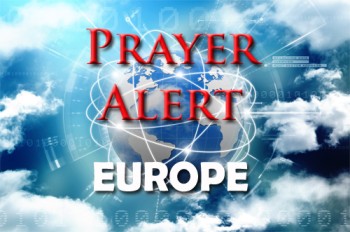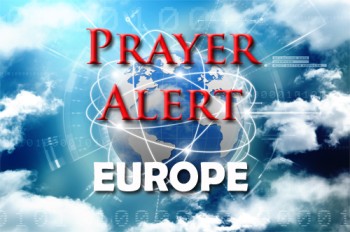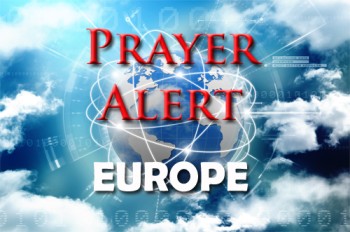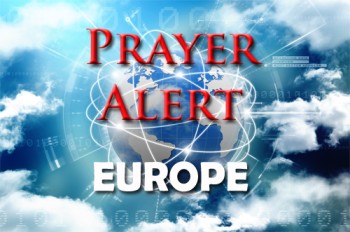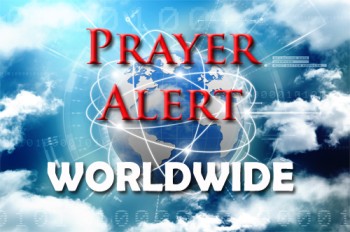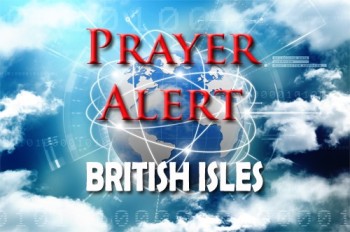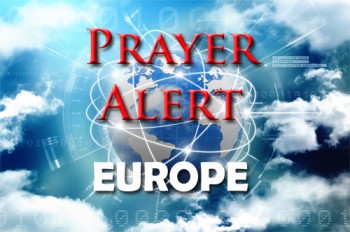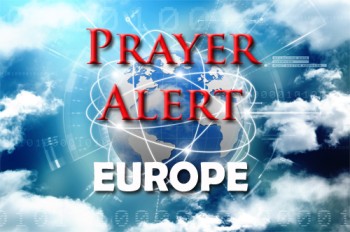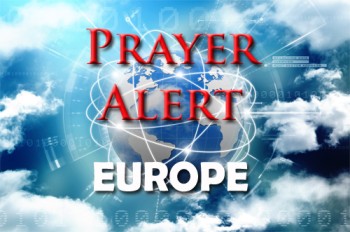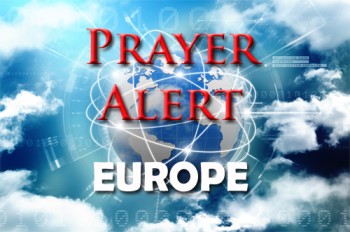Displaying items by tag: Russia
Ukraine: Sea of Azov Emptied of Russian Warships, Says Ukrainian Navy
Recent Ukrainian attacks in the Black Sea have compelled the Russian navy to rebase its ships, according to the Ukrainian navy. Dmytro Pletenchuk, a Ukrainian navy spokesman, confirmed that no Russian naval vessels remain in the Sea of Azov. Russian ballistic missile strikes on Kharkiv on Wednesday damaged the office of a Swiss mine-clearing NGO, injuring six people. Kharkiv mayor Ihor Terekhov reported that an industrial area was targeted. Kharkiv police head Volodymyr Tymoshko described a "double-tap" attack aimed at rescuers, who fortunately evacuated just before the second strike. Heavy Russian attacks have intensified around Pokrovsk in the Donetsk region, making conditions "tense" and difficult. Ukrainian forces continue to defend the area. The Institute for the Study of War (ISW) noted marginal Russian advances near Kharkiv and confirmed progress in Donetsk oblast. The ISW highlighted Russia's significant challenges in maintaining troop numbers and replacing heavy losses of equipment. Ukrainian authorities noted that Russia's current production is insufficient to cover these losses, with a British assessment indicating that Russia can only sustain operations until 2026-2027 by refurbishing Soviet-era stocks.
Ukraine: children’s hospital severely damaged by Russian missile
A Russian cruise missile has struck Okhmatdyt, Ukraine's largest children's hospital, in central Kyiv. The attack caused significant damage, including a collapsed roof that killed two hospital workers and injured 16 people, including seven children. Thousands of children, including those with cancer, undergo treatment at the hospital every year. The strike was one of forty launched against several Ukrainian cities, which resulted in at least 36 deaths and 125 injuries. Moscow, which habitually denies targeting civilian infrastructure, claimed the hospital was hit by a Ukrainian missile. The latest UN figures show over 30,000 civilian casualties since February 2022: see
Ukraine: Orban visits, calls for ceasefire
In his first visit to Ukraine for ten years, Viktor Orban has called for a ceasefire. A longstanding critic of Western military aid to Ukraine, he suggested that a swift ceasefire could expedite peace talks. He also expressed a desire to improve ties with Ukraine and offered economic assistance. Zelensky appreciated his visit, but stressed the need for a ‘just peace’ after over two years of fighting. Orban’s visit coincides with Hungary’s assumption of the EU presidency, which has raised concerns due to Budapest’s warm ties with Moscow. In the past, Hungary has accused Ukraine of curbing the rights of ethnic Hungarians, which Kyiv denies. Zelensky has recently said he is preparing a comprehensive plan for ending the war.
Russia: 20+ killed in terrorist attacks
At least twenty people have been killed in a series of shootings in Dagestan on 24 June. The attacks targeted a synagogue, an Orthodox church, and a traffic police post. Among the victims were fifteen law enforcement officers and civilians, including an Orthodox priest. The synagogue and church were set on fire before the attackers fled. The authorities say that five gunmen were later shot dead, and two sons of a local district head were arrested. The regional governor called it a ‘day of tragedy’ and declared three days of mourning in the predominantly Muslim region. Russia's national anti-terrorism committee attributed the attacks to ‘terrorists’, though no group claimed responsibility. This incident follows a major attack on a concert hall in Moscow three months ago, which killed 145 people.
Russia / North Korea: mutual defence agreement against ‘aggression’
Vladimir Putin and Kim Jong Un have signed a mutual defence agreement pledging support in case of ‘aggression’ against either country. The announcement followed Putin's visit to Pyongyang, his first since 2000, which Kim described as elevating their relationship to a ‘new, high level of alliance’. The pact raises Western concerns, potentially leading to Russian assistance for North Korea in a Korean conflict and North Korean support for Russia in Ukraine. Kim is accused of supplying Russia with weapons, while Putin is believed to be providing North Korea with space technology for its missile programme. Both leaders criticised Western sanctions and vowed to counter them. Kim expressed strong support for Russia's war in Ukraine, marking a historic moment in their alliance.
London hospitals hit by Russian ransomware attack
A recent ransomware attack by the Russian cybercriminal group Qilin has significantly impacted pathology services at several major London hospitals. The attack disrupted NHS services, leading to the cancellation or redirection of procedures and operations. Ciaran Martin, former chief executive of the National Cyber Security Centre, explained that these criminals, seeking financial gain, operate freely from within Russia and have a history of targeting various organisations globally. This attack, involving the shutdown of systems rather than data theft, has severely affected healthcare operations, reflecting the serious nature of such ransomware incidents.
Ukraine: Biden, China not to attend peace summit
Joe Biden will not be at the Ukraine peace summit in Switzerland on 15 and 16 June; instead, vice-president Kamala Harris and national security advisor Jake Sullivan will attend. The decision comes despite Biden’s attendance at France's D-Day anniversary celebrations and a G7 meeting in Italy in the next few days; on 15 June he will be at a Hollywood fundraising event. However, the White House stated that no other national leader had done more to support Ukraine’s sovereignty and peace. Over a hundred countries have promised to attend the summit, but some key states - notably China - have decided not to do so because Russia has not been invited. Volodymyr Zelensky criticised these decisions, and stressed the importance of Biden's presence for influencing other leaders. Meanwhile, Russian dissident Boris Kagarlitsky has been sent back to prison after only two months of freedom for his continuing opposition to the war. See
Ukraine: Russia and China issue nuclear war warning
Vladimir Putin is in China for crucial talks with President Xi Jinping, shortly after Russia launched a fresh incursion into Ukraine's Kharkiv region. Putin was received with full military honours, and Xi emphasised their strong 'friendship’. The two countries have issued a joint statement warning of the increased risks of nuclear war amid heightened tensions between nuclear powers. They emphasised that no one can win a nuclear war, and expressed concern over Australia's involvement in the US nuclear deterrence plans. They warned that the conflict in Ukraine could become uncontrollable and outlined plans to deepen military cooperation, including expanding joint military drills. China supports Russia's efforts to ensure sovereignty and territorial integrity, and both nations oppose using space for military confrontation and the seizure of foreign assets. Meanwhile, the Ukrainian military reports that it has forced Russian troops to slow their offensive in the northern Kharkiv region. Some commentators believe Russia is aiming to create a buffer zone near the border. The Kremlin dismissed Switzerland's planned peace summit for Ukraine as futile without Russia's involvement, despite over 50 countries planning to attend.
Ukraine: assassination plot foiled, massive Russian attack on energy structures
According to Ukrainian intelligence, a Russian assassination plot against Volodymyr Zelensky has been thwarted and two men arrested. They supposedly intended to kidnap and kill the president and other top officials as a ‘gift’ to Vladimir Putin before his inauguration. The two men were allegedly recruited by Russia before the invasion and tasked with coordinating a rocket attack. They face charges of treason and preparing a terrorist act. Russia’s defence ministry has not yet responded to the allegations. Meanwhile, on 7 May Russia launched more than seventy missiles and drones against Ukraine’s energy infrastructure. The attack was directed at facilities in Kyiv and six other cities. Moscow continues to target Ukraine’s energy infrastructure in the hope of denting industry and public appetite for fighting back against its invasion. See
Ukraine: Russia accused of using chemical weapons
US officials have accused Russia of using chemical weapons in Ukraine, violating international laws. They claim that the choking agent chloropicrin was used to make ‘battlefield gains’. The Kremlin has yet to respond but has denied similar allegations previously. Although in 2017 Russia said it had destroyed all of its Cold War-era stockpile in 2017, it faces accusations of incomplete declarations and subsequent chemical attacks, including the Salisbury attack and Navalny poisoning. Reports suggest Russian forces deployed tear gas grenades, resulting in Ukrainian casualties. Joe Biden has warned of severe consequences if the accusations are proved, and the USA has sanctioned Russian state bodies and firms allegedly linked to biological and chemical weapons programmes. Meanwhile, Human Rights Watch has called for a war crimes investigation, alleging Russian forces executed over a dozen surrendering Ukrainian troops a few months ago.
